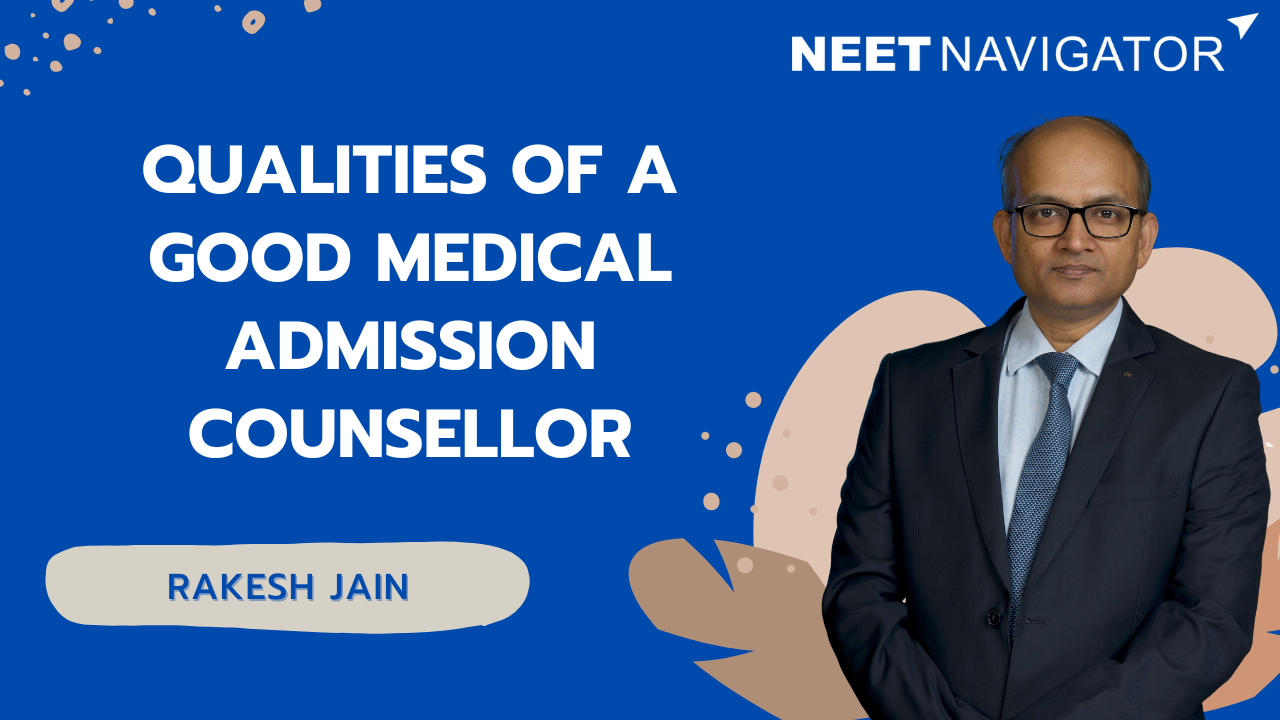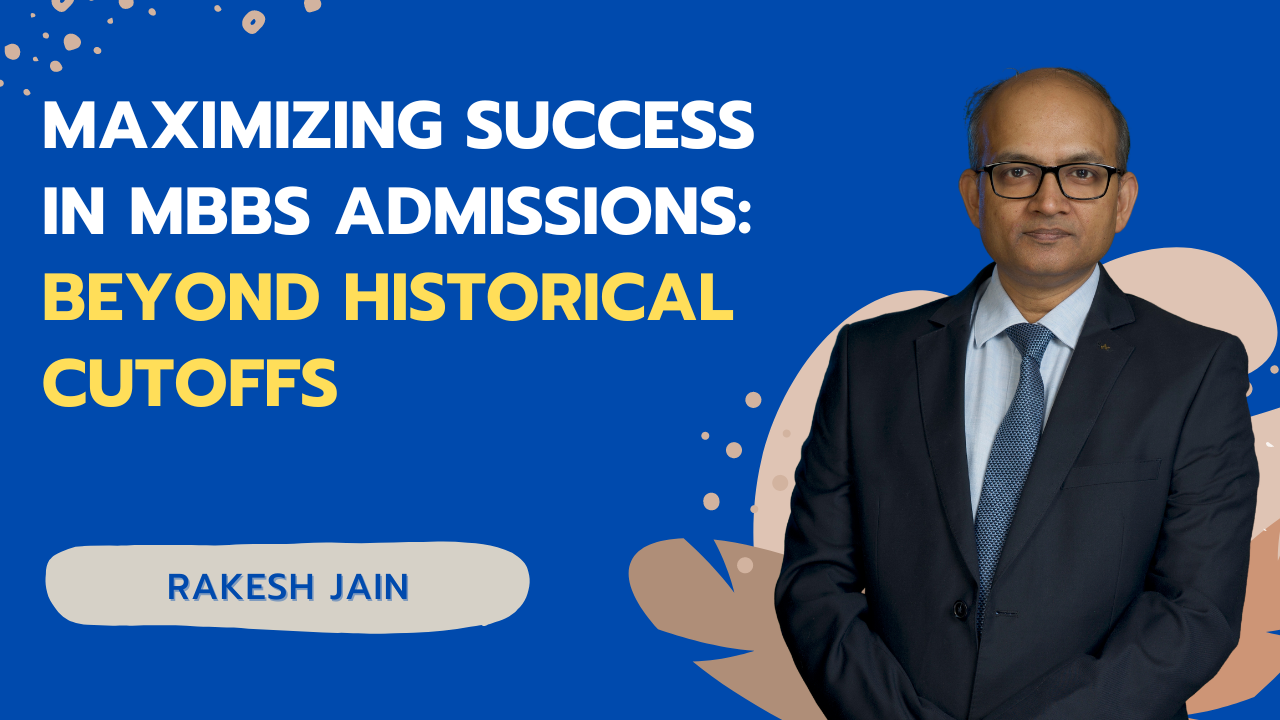How to choose the right medical college in India for your medical education
Blog / How to choose the right medical college in India for your medical education

Introduction:
Choosing the right medical college for UG and PG medical education is a crucial decision that sets the foundation for your future career in medicine. However, with the increasing number of medical colleges in India, selecting the ideal institution has become a daunting task.
Traditionally, many students and parents tend to opt for colleges in their state or region due to familiarity bias. However, this approach may not always lead to the best outcomes. With over 700 medical colleges across the country for teaching MBBS, it's essential to adopt a more objective and comprehensive approach to decision-making.
While many rely on the National Institutional Ranking Framework (NIRF) ranking as a guide, it's essential to understand its limitations. NIRF rankings are often based on a limited number of participating institutions, typically less than 100 medical colleges. Moreover, the ranking parameters used by NIRF does not capture the full spectrum of factors that influence the quality of medical education.
This article aims to provide guidance on how to navigate through this complex landscape and choose the right medical college tailored to your needs and aspirations.
1. Clinical Exposure:
One of the fundamental aspects to consider when selecting a medical college is the level of clinical exposure it offers. Clinical exposure is crucial for gaining practical experience and honing clinical skills. Look for colleges with robust outpatient department (OPD) and inpatient department (IPD) facilities. The more extensive the clinical exposure, the better prepared you'll be for real-world medical practice.
2. Year of Inception:
While older medical colleges often boast a rich legacy and experience, the age of the institution alone shouldn't be the sole determining factor. Evaluate the college's reputation, infrastructure, and faculty in conjunction with its inception year.
3. Management of College:
Consider the management type of the college - whether it's government-run, institute of national importance (INI), private, or deemed university. Government colleges are generally held in high regard due to their stringent regulations and quality standards.
4. Cost of Medical Education:
Financial considerations play a significant role in the decision-making process. Evaluate the tuition fees, hostel fees, and any hidden charges associated with the college. Opt for a college that offers quality education at a reasonable cost.
5. Admission Cut Offs:
Analyzing the admission cut-offs can provide insights into the college's academic standards and reputation. Colleges that attract top NEET rankers are often indicative of superior academic quality and infrastructure.
6. Infrastructure:
Assess the infrastructure of the college, including classrooms, laboratories, libraries, hostels, and hospital facilities. A well-equipped college with modern amenities can enhance your learning experience significantly.
7. Location of College:
Consider the college's location in terms of accessibility, safety, and convenience. Determine whether it's situated in a city or suburban area and its proximity to essential amenities such as airports, railway stations, and highways.
8. Faculty Profile:
The quality and stability of the faculty are critical factors that contribute to the overall learning environment. Look for colleges with experienced and dedicated faculty members who actively engage in teaching and research activities.
9. Admission Attrition Profile:
Evaluate the admission attrition profile to gauge student satisfaction and perception of the college. A high attrition rate during initial admission counseling may indicate underlying issues with the college's academic or administrative environment.
10. Culture:
Consider the cultural aspects of the college, including language, food preferences, and weather conditions. Opt for a college where you feel comfortable and can thrive both academically and personally.
11. Alumni Profile:
Research the alumni network of the college and whether it boasts notable alumni who have made significant contributions to the field of medicine. A strong alumni network can provide valuable support and networking opportunities.
12. Postgraduate Seats Availability:
Check if the college offers postgraduate (PG) and super specialty (SS) seats, as this indicates its commitment to furthering medical education and research.
Conclusion:
Choosing the right medical college is a critical decision that requires careful consideration of multiple factors. By evaluating colleges based on parameters such as clinical exposure, infrastructure, faculty, and alumni profile, you can make an informed choice that aligns with your academic and career goals.
NEET Navigator provides a comprehensive platform for comparing medical colleges based on these parameters, empowering students and parents to make well-informed decisions about their future in medicine.

About Light House
In India, students and parents fail to get the best outcome from medical admission counselling process. As a result, they either lose an opportunity of admission or they take admission in a medical college which may not be as good as they could have got or worse, they lose money due to fake promises and poor guidance.NEET Navigator offers India’s most authentic and advanced data analytics based medical admission counselling guidance for NEET UG (MBBS, BDS, BAMS), NEET PG (MD, MS, DNB, MDS) and NEET SS (DM, M.CH) in all India Government, Private and Deemed medical institutions.












Leave a Comment
Logged in as admin.Edit your profile. Log out? Required fields are marked*